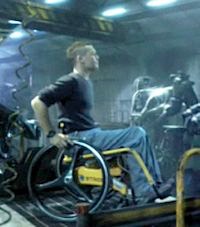In 1982, the purpose of the World Programme of Action was to promote the realization of the goals of ''full participation'' of disabled persons in social life and development, and of ''equality''. Adopted in December 1993, the Standards rules on equalization of opportunities of disabled people had as its purpose “… to ensure that girls, boys, women and men with disabilities, as members of their societies, may exercise the same rights and obligations as others”, and today the International Convention on the Rights of Persons with Disabilities requires governments that have ratified the treaty to "promote, protect and ensure (their) full and equal enjoyment of all human rights and all fundamental freedoms ...".
Armed with this array of texts and commitments, our societies talk a convincing talk but nonetheless, continue to show a profound resistance to implementing the objectives set therein. The texts are interpreted, translated and deftly diverted and too often, quickly forgotten.
The United Nations Convention and all laws enacted by states to improve access of persons with disabilities to their fundamental rights are clearly not sufficient. In China, for example, where the Government, having ratified the Convention, has not yet condemned a disastrous practice that we would like to believe part of the past. Their practice of using short people to produce a theme park seems straight out of the movie "Freaks" … which was released in 1932. Billed as a breakthrough and a way to fight against discrimination under the guise of charitable humanity, the initiative and communication perfectly illustrate deflections experienced by the principles of dignity and non-discrimination based on international law.
Intentions are adjusted to current standards but the practices continue, and nothing will change permanently without the inclusion of this change in culture, and the culture today is built as an international one and transmitted by images.
The cultural feature we print in society, we, people labelled “disabled”, participates to a global issue that addresses a cultural urgency to fill, not only on behalf of our dignity, but in principal for the education and public interest of society. Our struggles against discrimination as our contributions to the construction of a suitable living environment for our abilities and those of all, position us to be builders of a world we collectively need. These are disinterested solidarities where everyone can live in dignity regardless of its abilities and without being subject to other rules that govern the common area.
In this vision, the movie Avatar who has scored big in the minds of millions of viewers is a precursor film, not only for its technical and artistic performances but also for its contribution to change the cultural approach to disability. This is the first time where the hero of a popular story is "disabled" and also young, beautiful and strong ... and saves the world!
"Chapeau bas Mr Cameron”, your movie is a masterful contribution to the necessary changes of attitude. In the minds of many wheelchair users, there is now a time "before" and a time "after" Avatar."
To serve the same objectives of making life more accessible and the world more comfortable for everyone, I have the pleasure to attend the evening red carpet "Night of RefleXions, the closing ceremony” being held on May 5, 2010 at Imperial Theatre in Montreal in the province of Quebec in Canada.
Disabled Peoples’ International is pleased to reaffirm at this occasion that every human being has the same value regardless of their abilities, and encourages the film industry and artists to share our dream of a reality without discrimination and which highlights all talents and values.
The request that the Red Carpet in Cannes was accessible to all offers the world the challenge in which he committed by adopting the UN Convention on the Rights of People with Disabilities (UNCRPD) on December 26th 2006. It is also a challenge to stand tall against the apparent ease of a separate treatment for people based on their identity and their capabilities, and it engages with confidence to achieve the common goal that we already share and can build together through film.
Jean-Luc Simon
Chairperson

